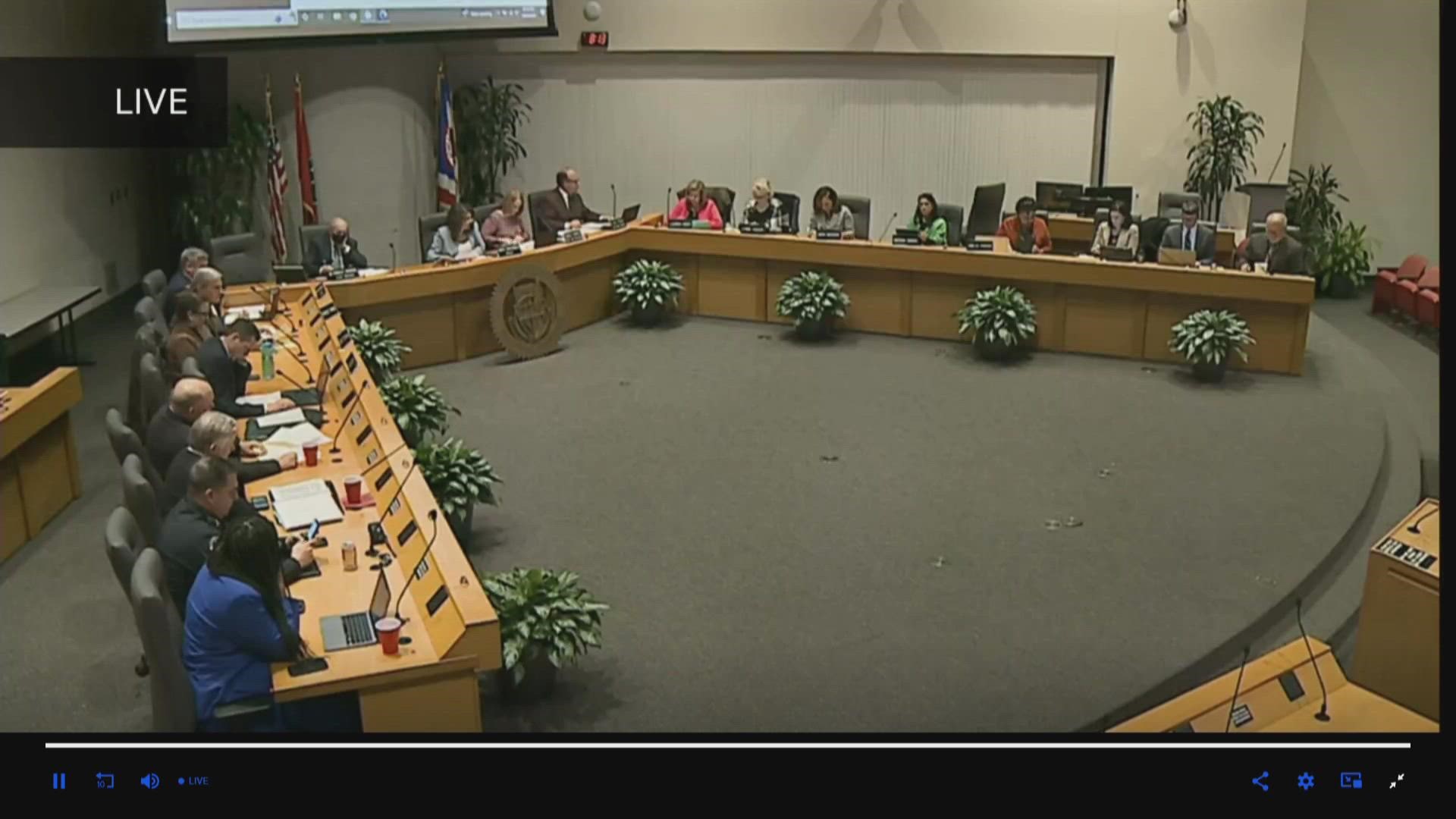KNOXVILLE, Tenn. — Knoxville City Council met on Tuesday to discuss whether to finalize two new ordinances that could affect pet owners and the Knoxville Police Department.
The first ordinance effectively banned unsupervised tethering of animals in the city. After around two hours of discussions, the city council agreed to amend the ordinance that passed on the first reading.
The original ordinance would have required pet owners to be "within visual range" of their pets if they were tied up. That language was removed, and the ordinance now just requires for pet owners to be outside with their animals if it is tied up.
People can also not tether animals using choke-type, punch-type or prong-style tethers, and the tether must be at least five times the length of the animal's body. Animals must also be tethered in a way that prevents injury, strangulation or entanglement.
If a pulley line or trolley system is used to tether an animal, those lines must also be at least 15 feet long and at least four feet above ground level. People will only be able to tether animals at least six months old, and they cannot be sick, pregnant, injured, in heat or nursing.
It also needs access to shade as well as fresh water.
The amended ordinance also says violators of the ordinance can get a warning before being fined. It passed Tuesday night.
The second ordinance they passed created a new role in KPD that oversees internal affairs and works to make the police department more accountable. It's called the "Police Deputy Director of Professional Standards."
The position oversees investigative work for internal affairs that can involve issues that are "highly sensitive and confidential." The person in this position will need to give briefings to the police assistant chief about complaints made against KPD or its employees.
The position will also review and audit body-worn camera violations, and review recordings in order to audit officer performance. They will also liaison with TBI and the District Attorney General's office on police shootings and in-custody deaths.
The position will also assess "the department’s current culture versus the desired culture and identifies specific gaps needing to be addressed." They will need to develop and execute plans that help employees understand, embrace and institutionalize improved behaviors.
They will also assess "the department’s work, including its policies, practices, procedures, training, communications, and standards, to help create, enhance, develop, plan, integrate, and implement diversity, equity, and inclusion goals and strategies."
According to the ordinance passed Tuesday, compensation for the position will be set by the Chief of Police, after discussing it with the Director of Human Resources and the Director of Finance and Accountability.

